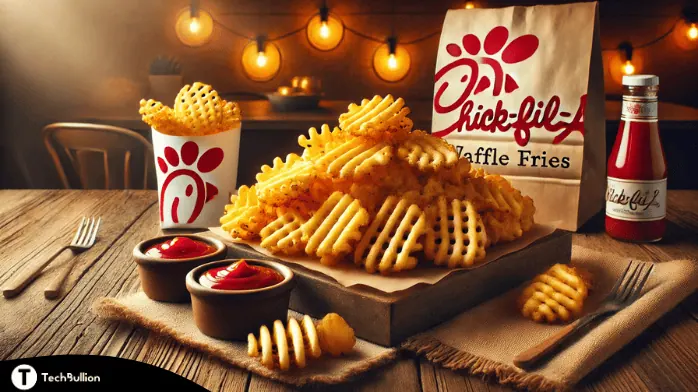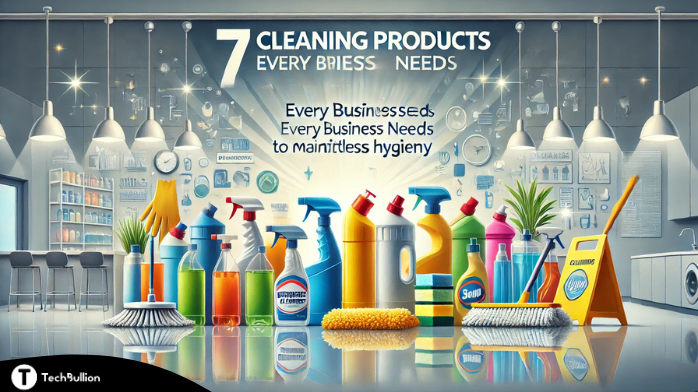After the cataract surgery, you should take care of your diet and look after Food Not To Eat After Cataract Surgery. During cataract surgery, the lens of the eye is taken out and, most of the time, a synthetic lens is put in its place. When you have a cataract, the lens gets cloudy even though it should be clear. Cataracts can finally make it hard to see.
An ophthalmologist, which is another word for an eye doctor, does cataract surgery. Because you are not a hospital patient, you do not have to stay in the hospital after the surgery. Surgery to remove cataracts is very frequent and usually doesn’t pose any risks.
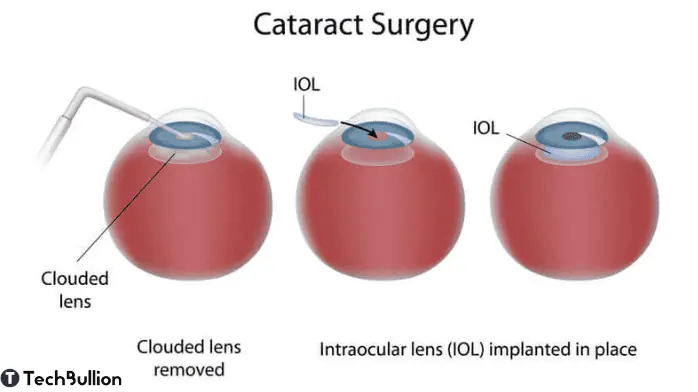
To fix cataracts, surgery is needed. Cataracts can make it hard to see clearly and make light glare worse. If a cataract makes it hard for you to do the things you normally do, your doctor may suggest that you have surgery to remove the cataract.
When treating one eye problem with a cataract gets in the way of treating another, surgery may be suggested. For instance, if a cataract makes it hard for your eye doctor to check on or fix other eye problems, like age-related macular degeneration or diabetic retinopathy, they may suggest that you have surgery to remove the cataract.
Why should you eat well after cataract surgery?
After eye surgery, it’s important to eat a healthy diet for these reasons:
Helps the body heal:
The foods give the body the vitamins and nutrients it needs to heal tissues and cells that were hurt during surgery.
Helps keep infections away:
The foods help keep your immune system healthy, which can help keep you from getting some infections after surgery.
Keeps inflammation in check:
Eating a healthy diet can give your body nutrients that help control inflammation, which can help you get better after surgery.
Foods to avoid after cataract surgery?
No evidence eating certain foods or sticking to a certain diet will help you heal faster after cataract surgery. But giving your body nutrients that help the immune system work and wounds heal may help with the overall mending process.
Also, there isn’t a study that says you should stay away from certain foods after cataract surgery, but staying away from these foods may help keep you from getting inflammation and making the healing process take longer:
Very prepared foods:
Candy, breakfast cereals with added sugar, and chips are all examples of highly processed foods that are often high in fats, sugar, and salt that are bad for you.
Extra sugar:
As a general rule, try to stay away from added sugar after surgery. According to a study, eating too much sugar can cause inflammation. Pick fruit like kiwis or berries if you want something sweet.
Added sugars and starches:
Refined carbs, like white bread and rice, are low in fiber and important nutrients. They may also make it take longer for your eyes to heal after cataract surgery.
Foods that are fried:
Avoid fried foods like French fries and fried chicken because they are full of fats that are bad for you and cause inflammation. A study from 2015 found that people with cataracts were more likely to eat a lot of saturated fat.
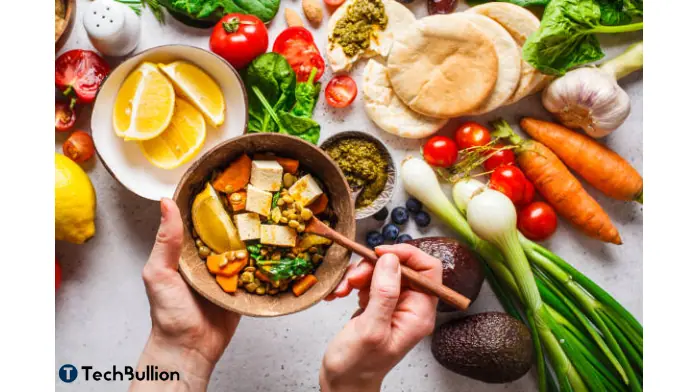
Liquor:
While you’re healing from eye surgery, you might want to drink less booze. A weaker immune system is linked to drinking a lot of alcohol, and any amount of alcohol can dry out your eyes. A big study from 2022 found a straight link between the amount of alcohol men and women drink and their risk of getting cataracts.
For smoking tobacco:
According to the World Health Organization (WHO), smokers are much more likely than nonsmokers to have problems after surgery, such as infections and wounds that don’t heal properly or at all.
You May Also Like To Read About
Plastic Surgeons Ozempic Face: Surprising Effects and Treatment
When can you eat again after surgery on your cataracts?
After treatment for cataracts, you can usually eat a light meal when you feel okay and awake. People usually say that you shouldn’t drink booze for about a week. Also, make sure you drink a lot of water to stay fresh.
It’s important to do exactly what your doctor tells you to do, because your doctor may have special dietary restrictions or suggestions based on your case.
Good foods to eat after surgery for cataracts:
It’s important to eat foods that are high in nutrients, reduce inflammation, and help the body heal after eye surgery. Vitamins C, E, zinc, lutein, and zeaxanthin are good for your eyes. You can find these nutrients in fresh greens, citrus fruits, nuts, and seeds.
The healing process is helped by the following foods:
Foods high in protein:
Foods that are high in protein give your body the amino acids it needs to heal and grow new eye cells. Fish, chicken, turkey, eggs, tofu, and beans are all in this group.
Foods high in vitamin C:
Foods that are high in vitamin C, like broccoli, red peppers, citrus fruits, and berries, can help reduce swelling and speed up the mending process.
Green veggies with leaves:
Leafy greens like spinach, kale, and collard greens are full of vitamins that can help low-level inflammation. There are also a lot of lutein and zeaxanthin in green leafy veggies. These are the main carotenoids found in the human retina.
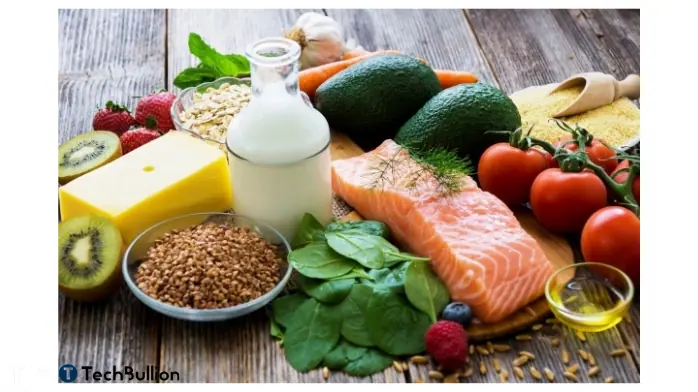
Foods high in zinc:
Zinc is an important nutrient for our bodies because it helps wounds heal, our immune systems work, and our eyes stay healthy. Also, zinc can help protect the eyes from damage caused by free radicals that is called oxidative stress.
Foods high in omega-3 fatty acids:
You can find omega-3 fatty acids in nuts, seeds, and fatty fish like salmon, tuna, and sardines. They can also be produced by your body itself. According to research, omega-3 vitamins can help with “dry eye” after cataract surgery. This is a common side effect of the surgery that can make it hard to see, hurt, and heal more slowly.
Water:
After eye surgery, it’s important to drink plenty of water. Every day, you should drink 2 to 3 liters of water.
Supplement with lactoferrin:
It is a natural protein that can help with dry eyes and can be found in tears and milk. A studyTrusted Source looked at 64 people who had cataract surgery and found that those who took a lactoferrin vitamin did 77% better on the “tear breakup time” test, which measures how long it takes for tears to separate in the eye. This was 60 days after surgery.
Even better, if you can start eating well before surgery for cataracts, it might help protect your eyes. A study from 2017 Trusted Source found that people who ate a lot of antioxidant-rich foods were 79% less likely to get cataracts. It was also found that omega-3s are good for you.
Bottom Line:
After having cataract surgery, a person should focus on eating healthy food that helps the body heal.
You should stay away from prepared foods, refined carbs, sugar, and salt. Also, people should stay away from tobacco and drinking, which can make inflammation and healing take longer.
Eating fresh fruits and veggies, lean proteins, and healthy fats can help keep your eyes healthy and speed up the healing process after cataract surgery.
Questions People Ask About What to Eat and How to Get Better After Cataract Surgery:
As you heal from cataract surgery, you may have a lot of questions, especially about how to change your food and way of life. Here are some commonly asked questions that can help you learn more about how to get through this important time for healing and long-term eye health.
Can I go back to my normal food right away after surgery for cataracts?
There isn’t a single right answer, but it’s usually best to stick to a healthy, well-balanced meal right after surgery. Focus on eating foods that reduce inflammation and are high in important nutrients to help your body heal. Stay away from foods that are high in sugar, salt, and unhealthy fats because they can slow down your healing.
After getting cataract surgery, how long should I not drink?
For at least a week after surgery or until your follow-up visit, you should try to drink less alcohol. Alcohol can make it harder for your body to absorb medicine, which can slow down the healing process. For example, your optometrist can give you advice that is specific to your situation.
Are there any vitamins I should take to help my body heal faster?
A well-balanced diet is the best way to get all the nutrients you need, but if you can’t get enough from food alone, your doctor may suggest pills. For example, omega-3 fatty acids, vitamin C, vitamin E, and zinc may be helpful as nutritional supplements. However, you should talk to your doctor before starting any new substance.
Can what I eat really change the health of my eyes after surgery?
Yes, what you eat does affect not only how quickly you heal after surgery but also how healthy your eyes stay in the long run. Antioxidants, omega-3 fatty acids, vitamins C and E, and other nutrients help the body heal, lower inflammation, and protect against getting more eye problems.
What foods are best for eye health and lowering inflammation?
Foods that are high in omega-3 fatty acids, like flaxseeds and fish, antioxidants, like nuts, berries, and dark leafy greens, and vitamins C and E, like almonds, sunflower seeds, and citrus fruits, are great for reducing inflammation and improving eye health.
How does staying hydrated affect getting better after surgery for cataracts?
Making sure you stay hydrated is important for your overall health and can especially help with healing after surgery. Staying properly hydrated helps keep the balance of fluids in the eye, aids in cleansing, and makes it easier for cells and tissues to work right while the body heals.
Is it safe to drink coffee after surgery for cataracts?
Most people think it’s safe to drink a moderate amount of coffee after cataract surgery. However, because caffeine can raise eye pressure and make you thirsty, it’s best to drink it in moderation and focus on drinking water and herbal teas instead.
What should I do if I can’t eat certain foods?
Talk to a nutritionist or dietitian if you can’t eat certain foods because of allergies, religious views, or personal choices. They can help you make a meal plan that fits your dietary restrictions and makes sure you get all the nutrients you need to help your recovery and general health.

